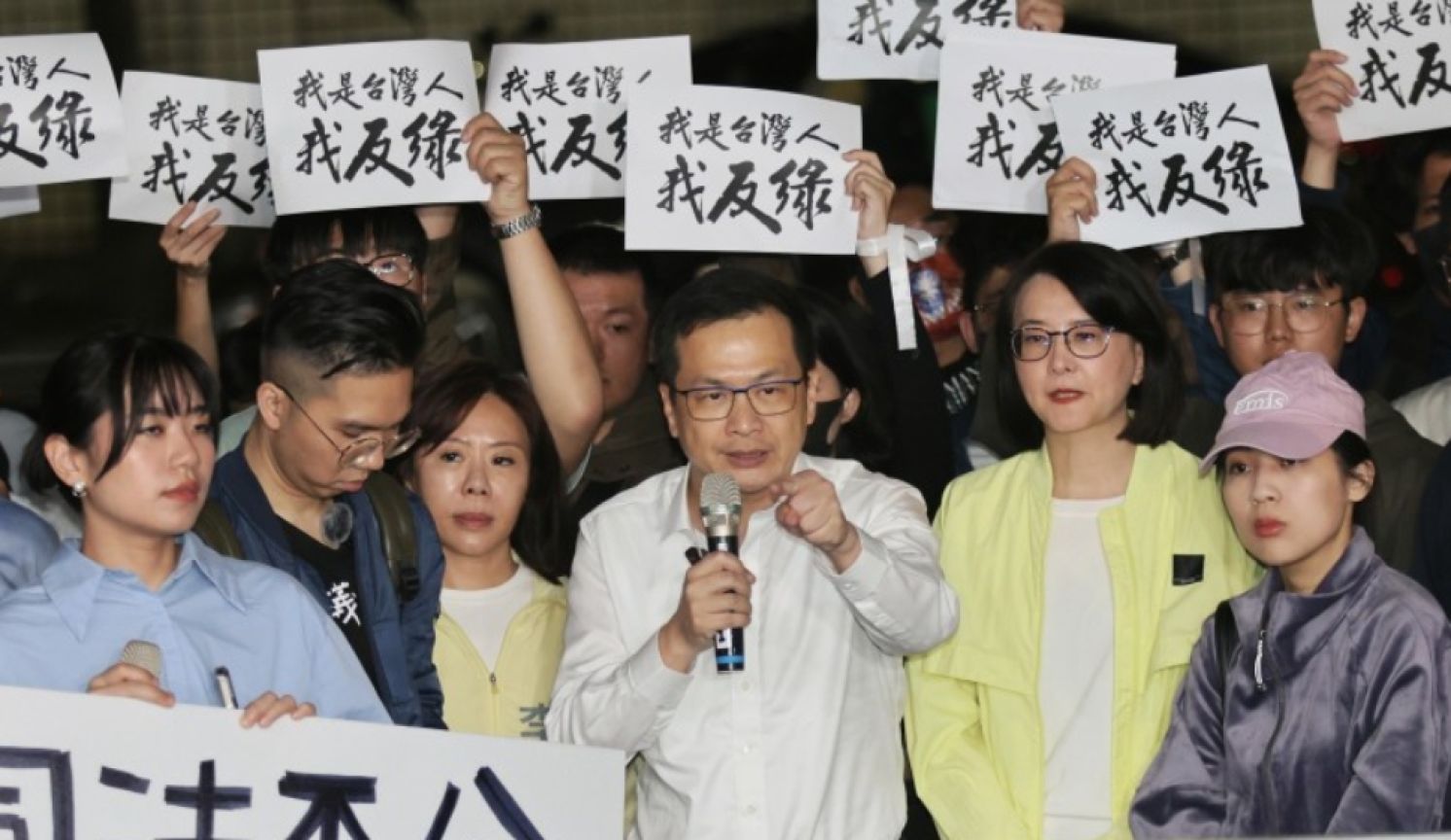
DPP Uses Prosecutors and Investigators to Support Recall Campaign and Infiltrate Campuses
The Storm Media Editorial, April 15, 2025
As steep tariffs announced by U.S. President Donald Trump draws international attention, Taiwan is simultaneously witnessing another political drama—a wave of recall campaigns. Despite waning public enthusiasm, the ruling Democratic Progressive Party (DPP) remains steadfast, pushing what was once framed as a movement of “civic autonomy” increasingly off the tracks of democracy and the rule of law.
The first issue is excessive judicial interference. In late March, the deputy chief of the Kuomintang’s (KMT) Tainan branch was detained for alleged "ghost signatures" in a recall petition. A Hualien County Government official was also detained simply for verifying petition authenticity. Yet within three weeks, the lead initiator of the recall effort against DPP legislators Wu Szu-yao and Wu Pei-yi was raided and questioned by the Investigation Bureau, Ministry of Justice, with reports suggesting more recall activists will be summoned. Such actions deviate from established practice, where only verified signatures are counted and the signers or organizers are not criminally pursued — highlighting a disturbing politicization and double standard in judicial procedures.
The only comparable case may be that of Foxconn founder Terry Gou’s failed independent presidential bid, where a county council speaker was detained for allegedly purchasing petition signatures. But even that investigation occurred after the campaign had ended. In contrast, the current administration's use of judicial power to suppress an ongoing recall campaign appears highly politically motivated.
The second issue concerns the misinterpretation of election laws. Minister of Education Cheng Ying-yao stated that while schools must remain neutral, student freedom of expression should be respected—implying that recall petition stations are allowed on campus. DPP Legislator Fan Yun further argued that politics should not be barred from campuses in a democracy. These claims ignore explicit provisions in the Civil Servants Election and Recall Act, which prohibit any recall advertising, petition stations, or campaign offices within school grounds.
If the recall of Legislator Wu were to set up a petition booth at Taipei National University of the Arts (TNUA), would it be granted the same leeway? If recall campaigns can enter campuses, should presidential or referendum petition drives be allowed too? In past cases, such as the "anti-same-sex marriage referendum," the Ministry of Education explicitly banned campus activities, citing the Fundamental Education Act. Yet the “Protect Algal Reefs” referendum saw widespread campus participation, and even a student-led referendum talk at the National Taichung University of Science and Technology was blocked by school officials. These inconsistencies suggest that what’s allowed often depends on whether the issue aligns with the ruling party’s interests.
In summary, the large-scale recall movement reveals three major crises facing Taiwan’s democracy and legal system:
-
The DPP is using recall campaigns as a tool to overturn election results and undermine public will.
-
The judiciary has been weaponized to serve political agendas, aiding specific parties through disproportionate investigations.
-
Educational authorities and scholars are bending legal principles to shield partisan interests, applying blatant double standards.
At the heart of any democracy lies fairness and rule of law. Yet the DPP’s manipulation of the recall process has eroded both. When politicians, the judiciary, and academia all prioritize party loyalty over legal integrity, rule of law becomes a farce, and the boundary between democracy and populism dissolves. This may be the most enduring curse that the DPP has cast upon Taiwan’s democratic legacy.
From: https://www.storm.mg/article/5356694?mode=whole
〈Back to Taiwan Weekly Newsletter〉